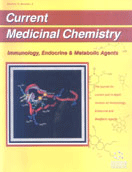Abstract
Apolipoprotein A-I (apoA-I) is the major protein in high density lipoprotein (HDL) and a major component of the reverse cholesterol transport pathway. ApoA-I also has been shown to have multiple anti-inflammatory properties including the ability to remove pro-inflammatory lipids, reduce monocyte chemotaxis and spreading, and alter interactions between T-cells and monocytes. A variant of apoA-I, apoA-IMilano, has been shown to reduce plaque volume in human coronary arteries after intravenous infusion. ApoA-IMilano and other forms of human apoA-I contain 243 amino acids. An apoA-I mimetic peptide, D-4F, synthesized from just eighteen D-amino acids has been shown to dramatically reduce atherosclerosis in mouse models after oral administration. After oral administration this peptide caused the formation of pre-β HDL, reduced lipoprotein lipid hydroperoxides, increased paraoxonase activity, rendered HDL anti-inflammatory and significantly increased reverse cholesterol transport from macrophages in apoE null mice. When D-4F was given by injection to LDL receptor null mice infected with influenza A virus, HDL was rendered anti-inflammatory and macrophage trafficking into the arteries of LDL receptor null mice was dramatically reduced. In vitro D-4F caused a shift in cytokine production by human monocytes exposed to human T cells from a Th1 to a Th2 profile and also protected human Type II pneumocytes against influenza A infection. We conclude that apoA-I mimetic peptides have therapeutic potential as antiinflammatory agents.
Keywords: apolipoprotein, apoa, atherosclerosis, inflammation
 1
1








